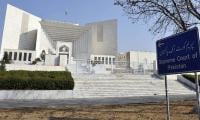MARDAN: Speakers at a seminar here on Friday emphasised on the role of citizens in nation building.
The event was organised by the Faculty of Social Sciences at Abdul Wali Khan University Mardan (Awkum), main campus, in connection with the upcoming Independence Day celebrations.
The event centered on the ideology of Pakistan and aimed to foster a sense of responsibility among students and citizens for nation-building and to portray a positive image of the country.
On the occasion, Prof Dr Zahir Shah, dean of the Faculty of Social Sciences, highlighted the significance of unity and constructive contribution toward realising the nation’s potential.
Dr Hussain Ali, head of the Sociology Department, stressed the importance of understanding societal dynamics to foster harmony and growth.
Syed Ali Shah, head of Pakistan Studies Department, delved into the country’s rich history and diverse heritage, urging attendees to embrace these aspects as sources of strength.
Dr Manzoor Ahmad, chairperson of Political Science, Dr Sajid Ali, head of IR, Ashraf Ali, chairperson of Law, Dr Naseem Rafiq, principal of UCW, and Dr Tahir Farid from the Psychology Department engaged in insightful discussions on the nation’s evolution
The seminar concluded on a resonant note, emphasising that Pakistan, with its abundant natural resources and human capital, stands on the threshold of immense potential. Prof Dr Zahir Shah stated that as the nation prepares to celebrate its Independence Day, the seminar serves as a reminder that each individual’s contributions pave the way for a brighter and more prosperous Pakistan.
CJP Justice Yahya Afridi convenes meeting of Judicial Commission of Pakistan on December 6
VPN demand escalated further on November 26, reaching 213% above baseline
Rehman declared that current government is a product of electoral manipulation
CM mentioned that priority measures are being taken to bridge gap between state and youth of Balochistan
K-Electric announces respite for people of Karachi by revealing plans to double country’s renewable capacity







